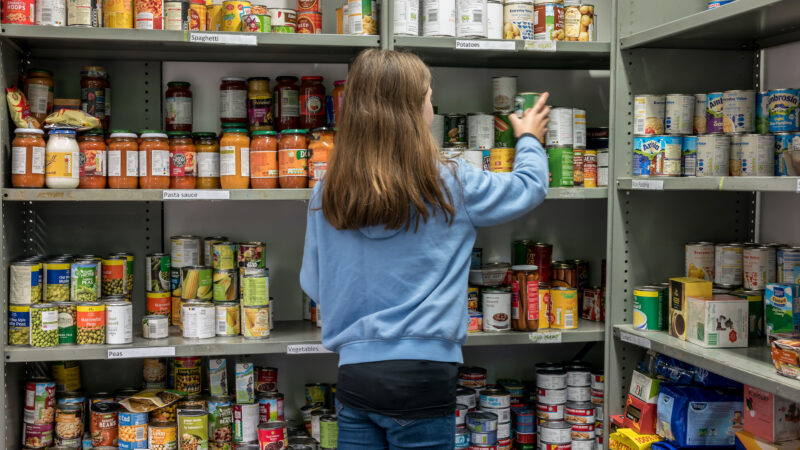
On Monday, Brent council joined almost two dozen other local and metropolitan councils in declaring itself a ‘Right to Food’ borough. First launched by Labour MP Ian Byrne at the start of 2020, the campaign aims to enshrine a right to food into legislation in order to “end the scandal of hunger and food banks once and for all”.
There were many reasons for us as Labour Party members to develop our own local right to food campaign in Brent. The council’s 2020 Poverty Commission found that one in six Brent households (17%) lived below the poverty line, doubling to 33% after housing costs were considered. This included more than one in five (22%) of Brent’s children, doubling to 43% after housing costs. The pandemic has only exacerbated the situation as a result of occupational and racialised health inequalities – many of them directly connected to diet – and work-related conditions like diabetes, high blood pressure and sleep dysfunction.
Contrary to Phil Wilson’s bizarre misreading of the right to food campaign as reducing political ambition for a more democratic Britain, the aim of the campaign is precisely to address the connected issues of fuel poverty, cramped housing, low wages, precarious working conditions, overpriced transport and unaffordable care through the everyday reality of food inequalities. People can only afford to choose what they and their dependents eat if they have good wages, a reliable income, free time and affordable means to buy, prepare, cook or eat out meals on a daily basis.
Fortunately, there are plenty of civil society and community organisations in Brent and elsewhere that also understand food insecurity as a systemic issue that requires joined-up thinking both in government and within society. When we formally launched the Brent right to food campaign last July at South Kilburn’s Granville Community Kitchen, our aim was to link up existing food-related initiatives in the borough – from food aid organisations to food-growing groups, unionised food workers to mutual aid groups – with the political aims of the #RightToFood campaign.
To succeed, this required at least three things. First, the autonomy of civil society organisations needed to be respected. We saw our role as putting the resources and power of the local Labour Party at the service of those in the community already tackling food inequalities. This involved listening, learning and discussing but also recognising where party-political work can or cannot be of assistance.
Secondly, for the campaign to be rooted in the experience and needs of Brent’s diverse communities, it was essential to take our time to build mutual trust and identify priorities. A small steering group made up of representatives from Brent’s food aid community organised a Brent right to food summit where different local stakeholders and the general public were invited to discuss concrete, deliverable policy proposals that might inform a Brent right to food strategy.
Finally, we needed some legitimate political power to propel the whole campaign forward so that public resources could be harnessed for democratic benefits like community kitchens or tackling ‘holiday hunger’. We established Brent Central Constituency Labour Party’s right to food policy through a unanimously approved motion, which then allowed Brent Labour candidates to stand on a right to food manifesto pledge at the May local elections. One of us was duly elected councillor and appointed Brent right to food champion.
The declaration of Brent as a right to food borough brings with it a commitment to co-design a Brent food justice strategy with relevant stakeholders, to prioritise cash-first solutions to emergency food aid and to improve access to urban agriculture, community food gardens, social supermarkets and community kitchens among other initiatives. It is just the start of a process that aims for a Brent beyond food banks. The road to that goal is long, and the years ahead will prove especially challenging as the cost-of-living crisis bites deeper, but in our view the slow build-up of focused campaigning that links workplace, community and government guarantees its longevity and ensures the needs of Brent’s working people remain embedded in it.




More from LabourList
‘SEND reforms are a crucial test of the opportunity mission’
Delivering in Government: your weekly round up of good news Labour stories
Labour place third in Gorton and Denton by-election as Greens gain seat